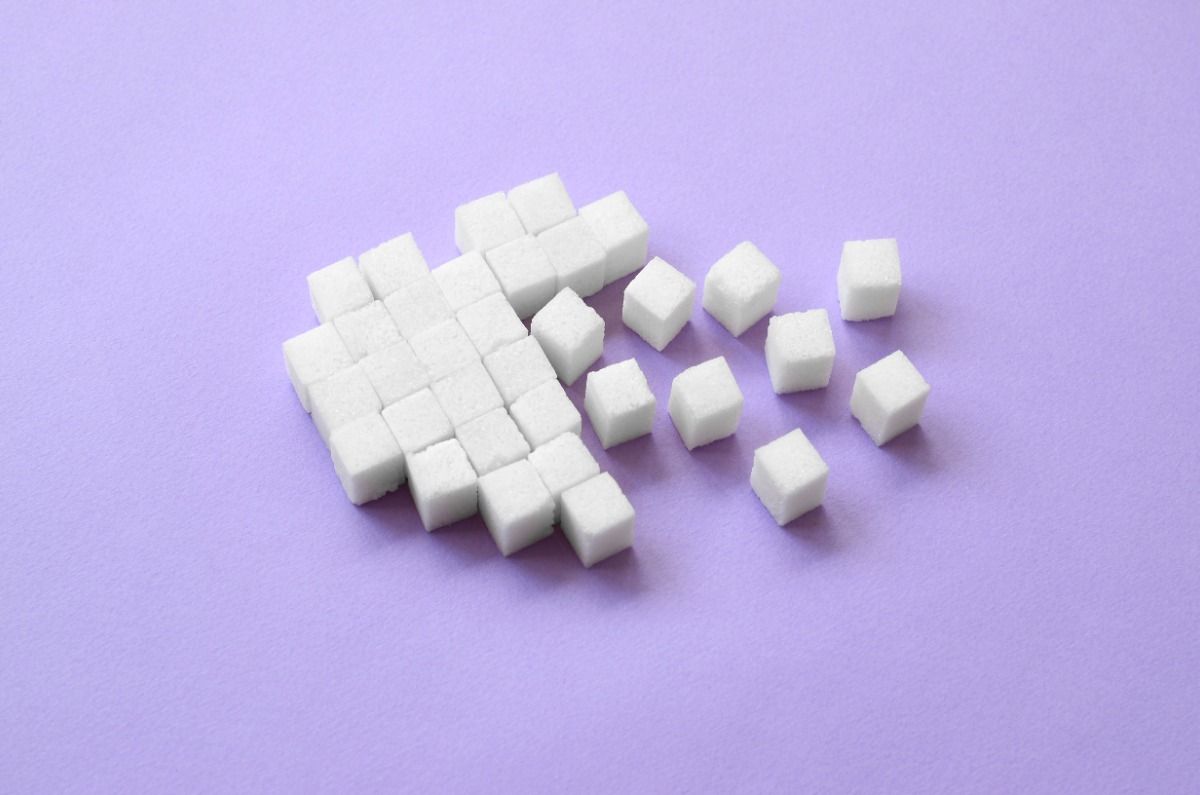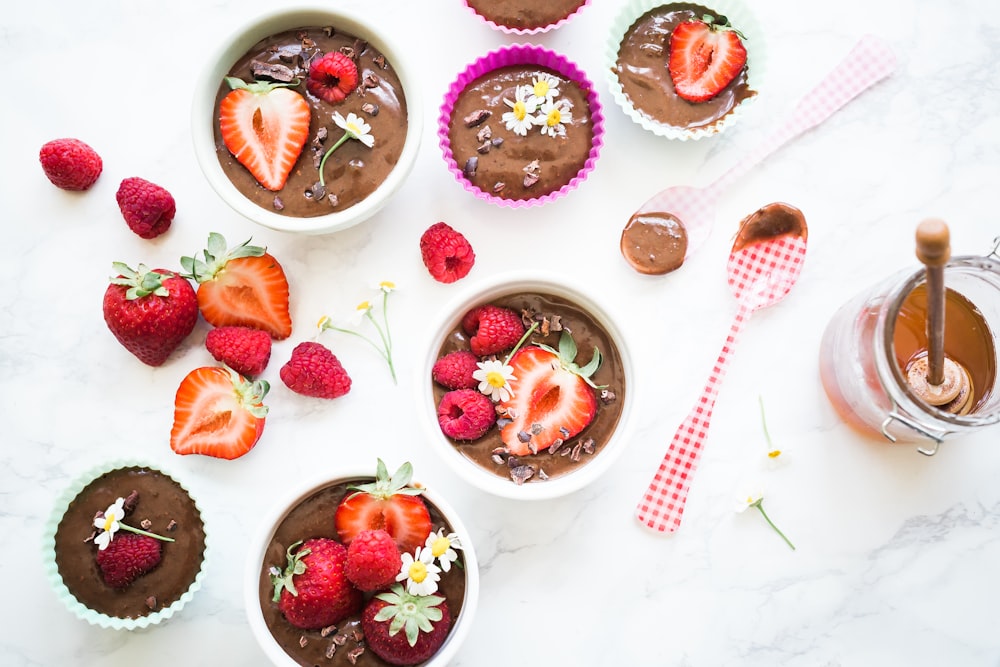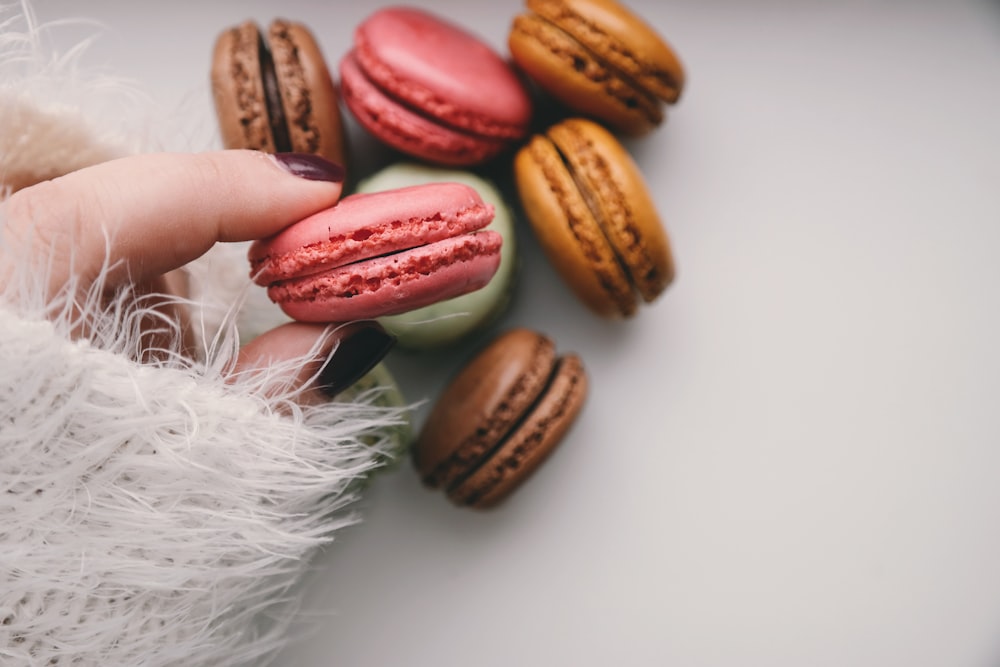
It’s human nature to crave sugar, and that’s why sugar substitutes exist: to appeal to a massive market of people who want to curb their sugar craving without gaining an unhealthy amount of weight.
Have you ever been tempted to go into a bakery on your way home for a cookie (or two)? Or absent-mindedly taken a chocolate bar off the shelf while you’re in line waiting to pay for your groceries? Do you instinctively reach for the largest cup there is when you fill up your soft drink?
Bakeries and grocery stores organize their displays the way they do for a good reason: they know that if it’s on display, cheap and easy to reach, chances are the customer is going to buy it, even if they weren’t planning on it. They might not even be hungry.
You don’t need to be hungry to crave sugar. That’s what makes it unique. Back when we dwelled in caves, sugar was hard to come by, so our bodies became biologically engineered to seek it out and when we found it, we consumed as much of it as we could. Little has changed in the present day.
The first artificial sweetener was created in 1879, and ever since, scientists have devoted countless resources to the development of healthier alternatives to sugar. The question is, are sugar substitutes actually good for you?

What Does Sugar Do To Your Body?
By now, most of us know that sugar doesn’t do much good for us. Health and wellness coach Kim Abbage Hart explains, “Sugar, while many love it, can have a negative impact on your overall health. Sugar, when consumed in large or excess quantities, can cause an insulin spike in your blood sugar levels. This effect can lead to numerous effects on your health such as higher blood pressure, inflammation in the body, weight gain [and] can lead to diabetes or other chronic diseases.”
Foods that contain refined sugars are ‘calorie-dense’ meaning they pack a lot of calories into a small amount of food. “Sugar is metabolized extremely quickly in your body thus spiking your insulin levels when consumed,” says Kim. “When consumed you get what we call a “sugar rush” or energy burst because it enters the body relatively quickly and then once it wears off that is the dreaded “sugar crash” that most people experience. When consuming sugar, your liver and muscles turn the glucose and store it as glycogen for energy. Sugar turns into fat due to the excess storage of glycogen. If you consume more sugar than your body is able to store, then the excess is stored as fatty deposits in the liver, thus causing weight gain.”
Some of us have a genetic predisposition to crave sugar more than others. It can be in your DNA to have a stronger sweet tooth. You can find out more about your genetic food preferences with a DNA test.
The Advent of Sugar Substitutes and Artificial Sweeteners
After the accidental creation of the world’s first artificial sweetener – saccharin – the developed world went wild for this ‘miracle product’. Saccharin required no land for growing sugar cane, didn’t need to be refined and was a low-calorie, tooth-saving alternative to table sugar -sucrose- which had to be rationed during the first world war.
From there, throughout the 20th century, we saw the invention of cyclamate, aspartame and sucralose, all man-made alternatives to sugar that promised to deliver the taste of sugar but without the risk to your health. In fact, many artificial sweeteners are much sweeter than sugar, so you don’t need to use much to get that satisfyingly sweet taste. FDA approval was shakey at first, with cyclamate eventually being pulled from the shelves after researchers discovered links between the product and bladder cancer in lab rats. However, there has been little empirical evidence of health concerns linked to artificial sweeteners in humans, and many people still enjoy using them today. They are considered by the FDA to be a relatively safe option for people looking to reduce their caloric intake, and for people who have diabetes. Some popular brands include Sweet N’ Low (made with saccharin), Splenda (made with sucralose) and Equal and Nutrasweet, both made with aspartame. The truth seems to be that not much research has been found to argue that sugar substitutes are bad for us.
Natural Sweeteners
Natural sweeteners are sweet foods or extracts from foods that are found in nature. Because they are marketed with the word ‘natural’, many people assume they are better for you. However, many natural sweeteners undergo processing that strips them of much of the nutritional compounds they contained, so it’s important to research the brands more than the product itself. A few examples of natural sweeteners include
- Honey
- Maple syrup
- Monkfruit juice
- Agave syrup
- Molasse
- Natural fruit juice or nectar
Compared to artificial sweeteners, these natural sweeteners do contain calories and can cause a spike in insulin levels.
Another category of natural sweeteners is sugar alcohol. Don’t let the name fool you, sugar alcohol does not contain ethanol. It is made from the carbohydrates of certain fruits and vegetables. Unlike many other sugar substitutes, sugar alcohol is not sweeter than table sugar and is not fully absorbed by the body, so the effect on blood sugar is less than with other sugars. This means that certain natural sweeteners won’t spike your blood sugar levels the way regular sugar would.
Natural sweeteners can still contain a lot of calories. Natural sweeteners are not necessarily more or less harmful than artificial sweeteners or table sugar.

Healthy Sugar Substitutes: Stevia
Stevia is a very sweet, plant-based substance and one of the healthier sugar substitutes. Stevia is made from the leaves of plants that are native to Brazil and Paraguay. It is naturally derived, although it is processed and highly refined, and contains so few calories that it can be marketed as a zero-calorie sweetener. A relatively new player in the game of sugar substitution, it has soared in popularity in recent years. Stevia can be substituted for sugar in recipes for jam, cakes and other recipes, and can be added to coffee, iced lattes, tea and unsweetened juice. Because it is so sweet, only a very small amount is needed.
The taste of Stevia might take some getting used to, but after a while, many people who didn’t like the taste start to love it. On the other hand, some people love the taste of Stevia right away.
Stevia is a very safe alternative to sugar for diabetics and for those looking to lose weight, as has virtually no effect on blood sugar levels, insulin levels or blood pressure.
Further, stevia may actually contain some health benefits. A research study conducted in 2012 suggested that stevia leaves may actually help to reverse liver and kidney damage in diabetic rats.
This is Your Brain on Sugar
With all these healthier sugar substitutes available, does that mean you should cut sugar out of your diet? Well, besides the fact that you’d be hard-pressed to find any food that contains no sugar, humans do need some real sugar in our diets. We just need to strike a good balance, maintain moderation, and avoid a sugar addiction.
Our brains cannot function without glucose. Our neurons work very hard and get most of the energy it needs from glucose. Neurotransmitters (chemical messengers that relay information between neurons) need sugar to do their job, too. A diet without sufficient sugar means that neurotransmitters cannot effectively communicate, causing cognitive decline.
On the other hand, too much sugar can be just as devastating to our health. When your diet contains too much sugar, BDNF (brain-derived neurotrophic factor, a protein that plays a role in the growth and maturation of nerve cells) production decreases, and neurological decline can be seen across a number of areas, particularly those associated with dementia, Parkinson’s disease and depression.
Therefore, when it comes to sweeteners, whether that be table sugar, artificial sweeteners, or sweeteners that are naturally derived, the key is (like with most things) moderation. Balance your sugar intake with healthy options such as fruits, vegetables, protein and fats, and make sure you’re getting enough exercise, water and sleep. With healthy lifestyle choices like these, you can enjoy your sweet treats in moderation when you feel like it.
